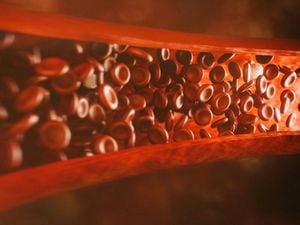People with these blood types are at higher risk of air pollution-related heart attacks
Outdoor air pollution is estimated to cause 40,000 premature deaths in the UK every year.

People with A, B, or AB blood type have a greater chance of suffering a heart attack when air pollution levels are significantly high compared to those with type O, researchers say.
Scientists have known for some time that PM2.5s, which are tiny particles less than 2.5 micrometers in size and small enough to get into the lungs, have been linked to heart disease and premature death.
But the researchers say their findings have, for the first time, shown a link between individual blood types and PM2.5 pollution.
People who have A, B, and AB blood types carry the ABO gene and the team at the Intermountain Medical Centre Heart Institute in Utah, wanted to find out whether a variant of this gene was linked to elevated risk of heart attacks during periods of high air pollution.

“The primary mutation we studied differentiates between O blood types and non-O, which includes positive and negative A, B, and AB blood types. The one that’s been found in genetic studies to be lower risk is O. The other three were higher risk.”
Their findings show that the risk is especially higher for non-O blood types when PM2.5 concentration rises above 25 micrograms per cubic metre of air.
According to Dr Horne, the risk for people with non-O blood types goes up by 25% for every 10 additional micrograms of PM2.5 particles per cubic metre, while the risk for people in the O blood group is 10%.
The World Health Organisation says exposure to PM2.5 pollution should not exceed 10 micrograms per cubic metre of air for it to be considered safe to breathe.

Dr Horne warns that people in A, B, or AB blood groups should consider staying indoors to minimise their risk if they already have underlying heart conditions, such as coronary artery disease.
Dr Horne said: “The association between heart attacks and pollution in patients with non-O blood isn’t something to panic over, but it is something to be aware of.
“In the information we provide to our patients about pollution, we try to stress that they can do something about it to reduce their risks: Stay indoors out of pollution. Exercise indoors.”
The study was presented at the American Heart Association Scientific Sessions in California.





